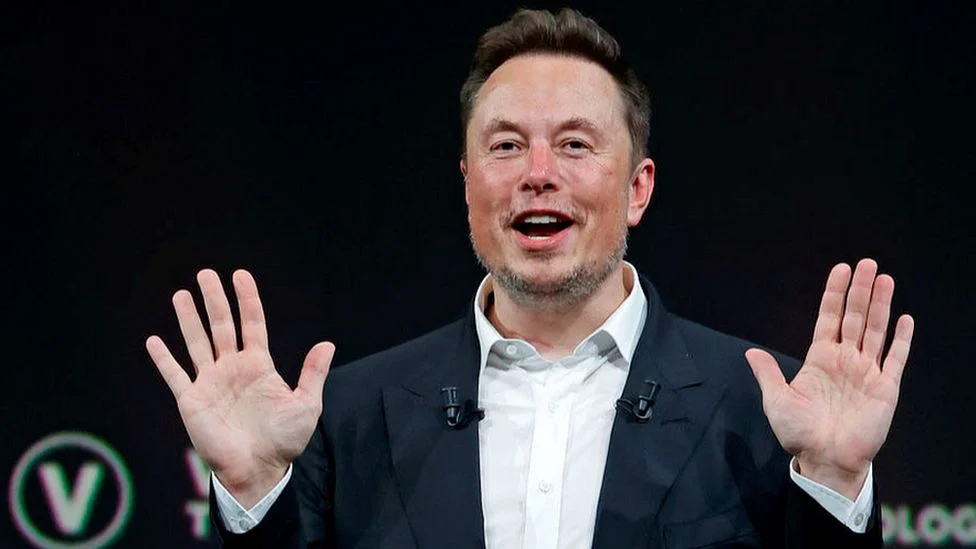In a recent turn of events, renowned American author Walter Isaacson has stirred controversy by making bold claims about tech entrepreneur and CEO of SpaceX, Elon Musk. Isaacson alleged that Musk had denied access to Starlink, SpaceX’s satellite internet service, to Kiev in response to Ukraine’s attack on the Russian naval base in Sevastopol. This sparked a heated debate and raised questions about Musk’s stance on the ongoing Russia-Ukraine conflict.
Elon Musk, a 52-year-old billionaire known for his outspoken views and ambitious technological ventures, responded unequivocally to these allegations. He made it clear that he does not see himself as obligated to fight for Ukraine, as he is not a citizen of the country. Musk took to what was formerly known as Twitter, now referred to as “X Monday,” to voice his loyalty to the United States and his willingness to defend his homeland, even to the point of laying down his life for it. He emphasized that he holds only a U.S. passport and that his commitment lies firmly with his country.
Musk’s decision to restrict access to Starlink satellite services triggered international outrage. His primary concern was that providing such services to Ukraine’s actions against Russia could potentially escalate the conflict to a dangerous level, including the risk of nuclear confrontation. In his Monday post, Musk stated, “I am a citizen of the United States and have only that passport. No matter what happens, I will fight for and die in America.” He also pointed out that the U.S. Congress had not declared war on Russia and questioned those who accused him of treason.
Walter Isaacson, who authored an autobiography of Elon Musk, sought to understand Musk’s involvement in the Russia-Ukraine war. Musk clarified that Starlink was designed for peaceful purposes, such as enabling internet access for activities like streaming content, online education, and other non-military applications. He expressed concerns that the Ukrainian attack on Russian vessels could provoke the Kremlin into launching a nuclear war, emphasizing that Starlink was not intended to be part of military conflicts.
In the book, Musk was quoted as saying, “I think if the Ukrainian attacks had succeeded in sinking the Russian fleet, it would have been like a mini Pearl Harbor and led to a major escalation.” He underscored his reluctance to involve Starlink in such a scenario.
Regarding claims of an emergency request from Ukraine to activate Starlink in Sevastopol, Musk clarified that SpaceX had not deactivated anything because it had not been activated in those regions to begin with. He explained that agreeing to such a request would make SpaceX complicit in a major act of war and conflict escalation.
Deputy Chairman of the Security Council of Russia, Dmitry Medvedev, took to Twitter to commend Musk, suggesting that if the book’s claims were accurate, Musk appeared to be one of the few rational minds in North America.
Elon Musk had previously advocated for a truce in the Russia-Ukraine conflict, emphasizing that Ukrainians and Russians were losing their lives over small pieces of land, which he considered not worth the sacrifice. However, his comments drew criticism last year when he suggested recognizing Crimea as part of Russia and allowing residents in Russia-controlled regions to vote on their preferred country affiliation.
Mikhail Podoliak, a top aide of Ukrainian President Volodymyr Zelensky, accused Elon Musk of “committing evil” on Twitter, alleging that Musk’s actions had allowed Russian naval vessels to carry out deadly attacks on civilians by denying Ukrainian drones access to Starlink. Podoliak questioned why some individuals defended war criminals and encouraged such actions.
As the controversy surrounding Elon Musk’s stance on the Russia-Ukraine conflict continues to unfold, it raises important questions about the role of technology companies and their leaders in global conflicts and geopolitical tensions. Musk’s unapologetic commitment to his American citizenship and his reluctance to engage Starlink in military actions will undoubtedly fuel further debate on this complex issue.




